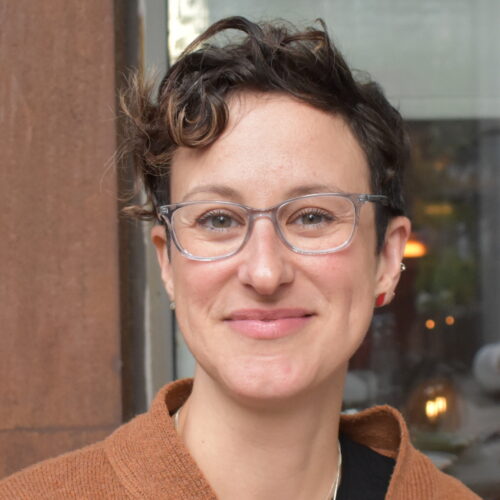Katherine Entigar

Katherine Entigar
Assistant Professor of Critical Adult Education
Department of Leadership, Higher and Adult Education/OISE
“Developing a course with a CEL component seems like an easy move when it comes to adult education and community development, the scholarly area where I teach and do research, even though I think my approach is different from other CEL courses. As a teacher educator who has worked with ESL/ENL teachers for many years, I decided to create an opportunity for my students to co-teach a weekly online ESL course I’d been teaching with a refugee-serving organization in Toronto. In small groups, students met with me prior to ESL class to talk about newcomers in education, multilingualism, and lesson planning/execution. I invited my CEL students to share their experiences with/as multilingual newcomer students as well as their work in community contexts and gave a background on the changing group in the ESL class. We discussed the values I centralize in my work, based on critical intersectional and feminist frameworks of care, cultural humility, and radical unknowing. We talked about using multiple languages to support learners and create a safe space where people could get to know each other. After we completed this part of the process, we met again online in the ESL class and directed the lesson together. My CEL students commented in a post-class reflection how much they enjoyed the class, how much they learned and appreciated the trust and welcome they were offered by the ESL group, as well as how much they struggled with the politically complex activity of “teaching newcomers English.””
Katherine Entigar
